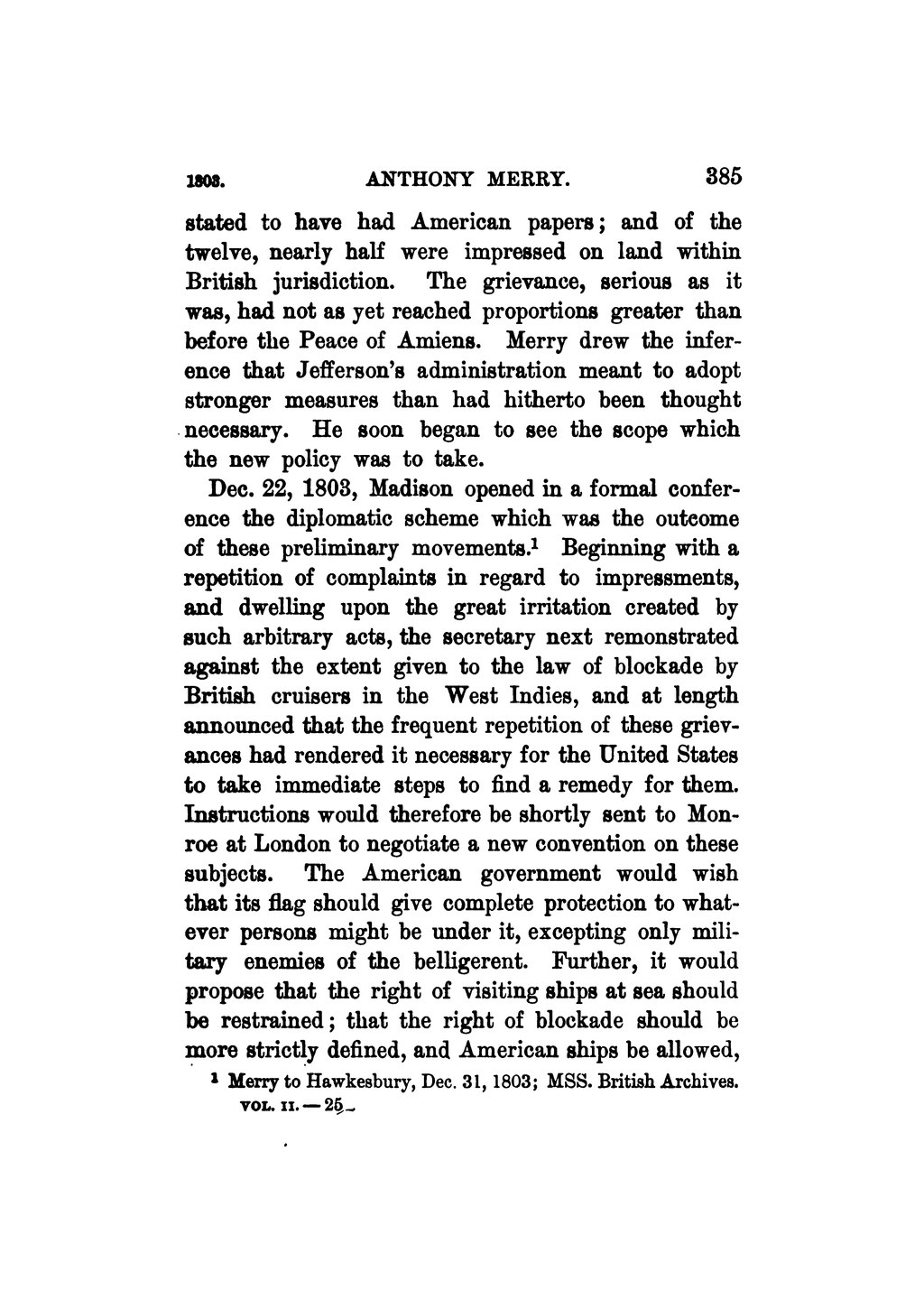stated to have had American papers; and of the twelve, nearly half were impressed on land within British jurisdiction. The grievance, serious as it was, had not as yet reached proportions greater than before the Peace of Amiens. Merry drew the inference that Jefferson's administration meant to adopt stronger measures than had hitherto been thought necessary. He soon began to see the scope which the new policy was to take.
Dec. 22, 1803, Madison opened in a formal conference the diplomatic scheme which was the outcome of these preliminary movements.[1] Beginning with a repetition of complaints in regard to impressments, and dwelling upon the great irritation created by such arbitrary acts, the secretary next remonstrated against the extent given to the law of blockade by British cruisers in the West Indies, and at length announced that the frequent repetition of these grievances had rendered it necessary for the United States to take immediate steps to find a remedy for them. Instructions would therefore be shortly sent to Monroe at London to negotiate a new convention on these subjects. The American government would wish that its flag should give complete protection to whatever persons might be under it, excepting only military enemies of the belligerent. Further, it would propose that the right of visiting ships at sea should be restrained; that the right of blockade should be more strictly defined, and American ships be allowed,
- ↑ Merry to Hawkesbury, Dec. 31, 1803; MSS. British Archives.
